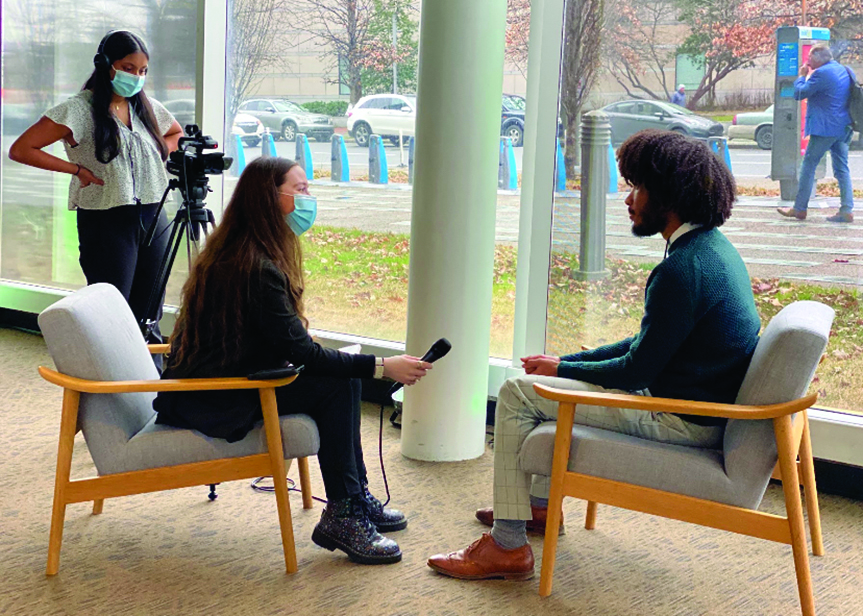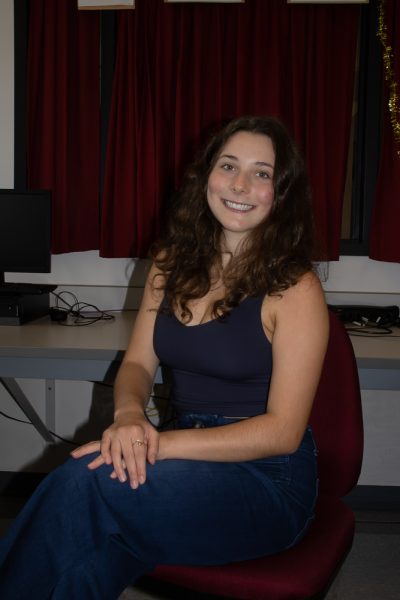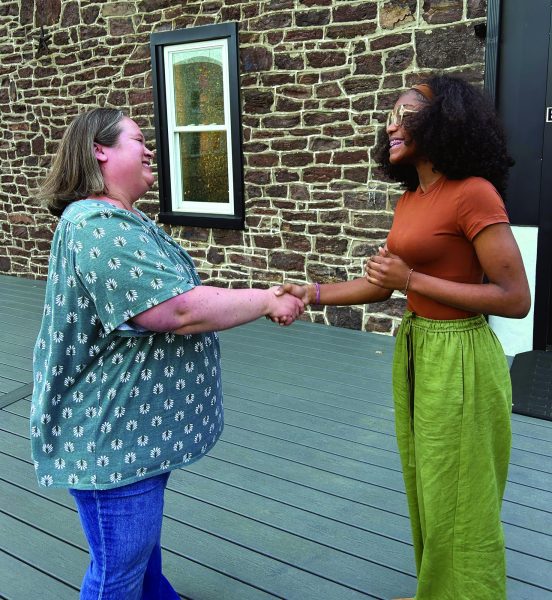WHYY educates via multiple mediums
Ensuring that people in the Philadelphia metropolitan area are accurately represented, WHYY prioritizes covering various topics missed by mainstream media.
Breaking news…Expanding their journalism techniques during an Arrowhead field trip to WHYY Studios in Philadelphia on March 23, senior Amanda Hill interviews WHYY reporter Kenny Cooper while junior Sahana George works the camera.
By providing a multitude of free resources and specialized media educational programs for the people of Philadelphia, WHYY promotes easy access to information while giving a voice to the voiceless.
WHYY is a public media company, meaning that they receive funding from individuals and do not operate under the direction of the government or with a commercial interest.
According to WHYY producer Naomi Brito, “Public and local media institutions are incredibly important for civic health.”
“[They] are incredibly important for people being accurately informed about what’s going on so that they can make accurate and informed decisions about how they want to move throughout their worlds,” Brito said.
WHYY, therefore, covers a wide variety of issues and topics from policy updates to local artists.
WHYY reporter Sam Searles reports on gun violence and prevention in Philadelphia in a way that doesn’t “sensationalize” gun violence by upholding “respect” of those involved throughout the process.
“The primary focus is to bring the issue to light in a way that is solutions-focused,” Searles said, “but also puts people at the center of everything that we do.”
According to Searles, being “people-focused” and always willing to “grow” and learn how to “connect with the community better” has created a foundation of trust between her, WHYY and the community.
“We’re very focused on transparency about being who we are and what we stand for,” Searles said. “[We] make ourselves very open to the community in as many ways as possible.”
WHYY also values properly representing the people of the Philadelphia Metropolitan Area.
One of WHYY’s programs includes Movers and Makers, a series on WHYY’s YouTube channel focusing on the various arts and culture topics in short documentary video format, with topics covering urban farming to small Philadelphian artists.
According to Movers and Makers producer Karen Smyles, “The wonderful thing about Movers and Makers is we really get to highlight local arts and culture.”
“One of the really important things about public media is that it really is our mandate to tell stories that are not necessarily being told by broadcast news or mainstream media,” Brito, also a Movers and Makers producer said, “and to tell them in a way that is really artful and really resonates with viewer.”
WHYY producer Kayla Watkins, who produces short documentaries for Digital Studios, said that representing all people via film causes those usually unrepresented to become empowered.
“When you bring the camera to working people, it helps give a sense of autonomy and just kind of fighting against erasure,” Watkins said. “It makes you feel that much more heard and that if something happens to me, someone’s going to pay attention to it.”
WHYY also offers multiple education programs by bringing media education and materials to schools and by offering after school programs and summer camps at WHYY studios. WHYY director of school partnerships Lisa Wilk said that it is WHYY’s “duty as a public media station to provide educational opportunities.”
“We do pride ourselves on being in the community and giving opportunities for people, not just as educational content on TV, but also going to schools and teaching young people how to do their own storytelling,” Wilk said, “and we believe that their stories are powerful and they have something to say.”
According to Wilk, via WHYY’s program Media Lab, WHYY has donated film equipment to over 55 schools in Philadelphia and Camden, focusing on providing materials to schools without an existing film media program.
WHYY offers the Pathways to Careers program to expose students to different fields in media and journalism by equipping them with the necessary skills to thrive in those careers. Students can then become part of the Youth Employment Program to do freelance media work.
WHYY media instructor specialist Joe Savin said that without these programs, students would be missing out on a “career opportunity,” but also wouldn’t be given the opportunity to “share their own stories.”






